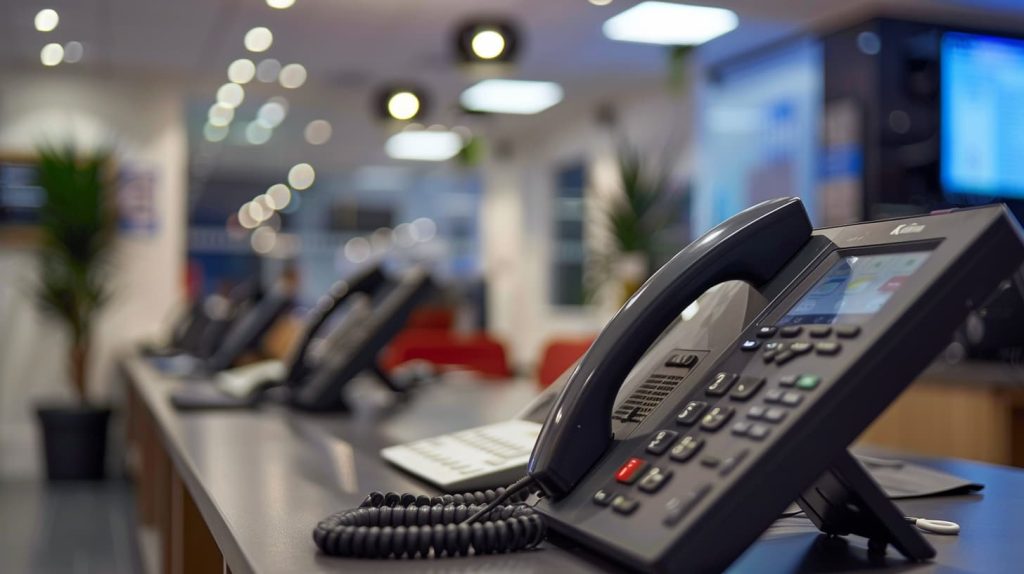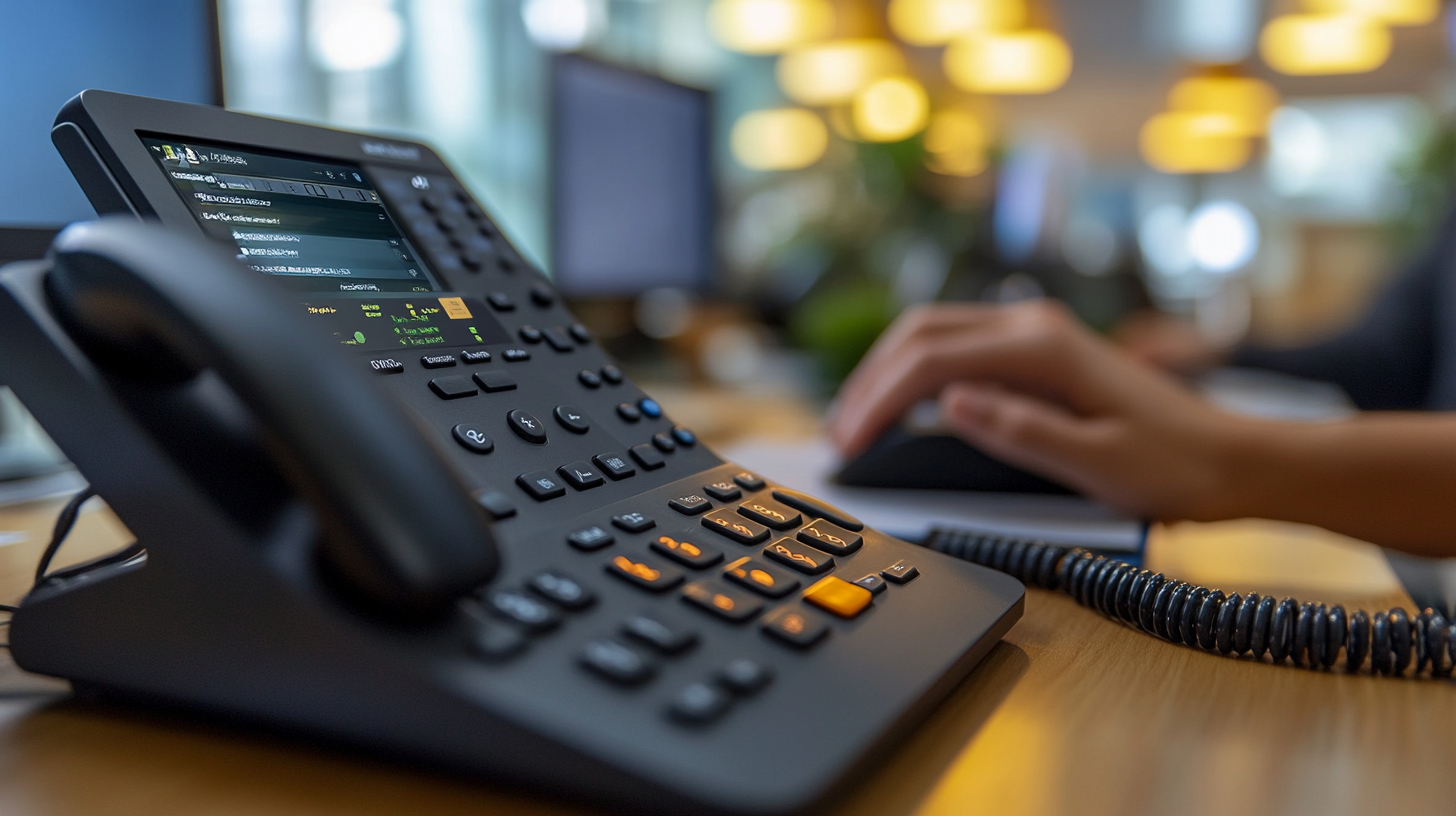Imagine your business’s entire communication infrastructure being compromised in the blink of an eye—it’s a nightmare scenario that’s more plausible than you might think. When it comes to VoIP, securing your communications isn’t just a good practice; it’s a necessity. From employing robust encryption protocols to conducting regular security audits, each step you take can greatly lessen the risk of unauthorized access. But how do you guarantee every aspect of your VoIP system is fortified? Let’s explore the essential measures you need to implement to safeguard your business’s privacy.
Table of Contents
ToggleKey Takeaways
- Implement strong VoIP encryption using protocols like SRTP and TLS to secure audio streams and signaling information.
- Utilize Virtual Private Networks (VPNs) to encrypt and protect VoIP data from unauthorized access.
- Configure VoIP devices with secure protocols such as SIP-TLS and SRTP, and enforce complex password policies.
- Conduct regular security audits to assess and improve network configuration, access controls, and intrusion detection systems.
- Employ multi-factor authentication (MFA) and regularly update VoIP software to mitigate vulnerabilities and enhance security.
Understanding VoIP Security
Securing VoIP communications begins with understanding the potential risks and vulnerabilities that could jeopardize your business calls. To protect your VoIP system, you must implement strong VoIP encryption. Encryption converts your voice data into coded messages, making it much more challenging for unauthorized parties to listen in on conversations. This step is vital because VoIP traffic frequently travels over the internet, exposing it to potential interception.
Privacy measures are another crucial element. These measures involve using secure passwords, regularly updating your VoIP software, and employing firewalls to prevent unauthorized access. By doing this, you establish multiple layers of defense that collaborate to safeguard your communication channels from intrusion.
You should also consider utilizing Virtual Private Networks (VPNs) to add an additional security layer. A VPN encrypts all of your internet traffic, including VoIP calls, providing an extra shield against cyber threats. Furthermore, make sure that all VoIP devices are configured to utilize secure protocols such as SIP-TLS and SRTP, which offer enhanced protection for signaling and media streams.
Common VoIP Threats
While encryption and privacy measures are essential for securing your VoIP communications, it’s also important to be aware of the common threats that could compromise your system. VoIP hacking is a significant risk where attackers exploit vulnerabilities to intercept calls, steal sensitive information, or disrupt services. They can use techniques like man-in-the-middle attacks to eavesdrop on your conversations if VoIP encryption isn’t properly implemented.
Another threat is Denial of Service (DoS) attacks, where hackers flood your VoIP network with excessive traffic, causing disruptions or complete outages. This can severely affect your business operations and client communications. Phishing scams also pose a risk, as attackers might trick employees into revealing login credentials or other confidential information.
Additionally, toll fraud is a common issue where attackers gain unauthorized access to your VoIP system to make long-distance or international calls at your expense. Weak passwords and outdated software can further expose your system to these threats. By understanding these risks, you can take proactive measures to protect your VoIP infrastructure, guarantee robust VoIP encryption, and safeguard your business communications from potential attacks.
Implementing Encryption
Implementing encryption in your VoIP system is crucial for protecting your business communications from unauthorized access and potential cyber threats. By using strong encryption protocols, you can make sure that your conversations remain confidential and secure. Encryption protocols like Secure Real-time Transport Protocol (SRTP) and Transport Layer Security (TLS) are necessary for safeguarding your voice data.
SRTP encrypts the audio stream, making it challenging for eavesdroppers to decode the communication. TLS, on the other hand, protects the signaling information, guaranteeing that call setup and management data is secure. Both protocols work together to provide complete data protection, preserving the integrity and privacy of your communications.
You should also consider end-to-end encryption, which ensures that only the communicating parties can decrypt the messages. This adds an extra layer of security, reducing the risk of man-in-the-middle attacks. Regularly update your encryption algorithms to stay ahead of emerging threats and vulnerabilities.
Secure VoIP Authentication
Securing your VoIP system doesn’t stop at encryption; robust authentication methods are just as vital for protecting your business communications from unauthorized access. You must implement strong authentication methods to guarantee that only authorized users can access your VoIP network. Passwords alone aren’t enough. Instead, consider multi-factor authentication (MFA), which combines something you know (password), something you have (security token), and something you are (biometric data).
Using secure protocols is another pivotal step. Implementing protocols like SIP-TLS (Session Initiation Protocol over Transport Layer Security) ensures the signaling data is encrypted and authenticated. Additionally, SRTP (Secure Real-time Transport Protocol) can be used to protect the media streams, adding an additional layer of security.
Ensure that your authentication methods include regular updates and patching to avoid vulnerabilities. Default credentials should be changed immediately, and complex passwords enforced. Employing a role-based access control (RBAC) system can also limit access based on user roles, minimizing the risk of internal threats.
Regular Security Audits
Regular security audits are important for identifying vulnerabilities and making sure your VoIP system remains secure against evolving threats. By conducting these audits, you can pinpoint network vulnerabilities that could be exploited by cybercriminals. To start, you should implement remote monitoring tools that continuously oversee your VoIP infrastructure. These tools can detect suspicious activities in real-time, allowing you to respond promptly to potential issues.
During the audit, pay close attention to your network’s configuration and access controls. Make sure that only authorized personnel have access to critical components of your VoIP system. Evaluate your encryption protocols to verify that data transmitted over the network is adequately protected from eavesdropping.
It’s also essential to review your firewall settings and intrusion detection systems. These should be configured to block unauthorized access attempts and alert you to any irregular patterns. Regularly update your software and hardware to patch any known security flaws.
Conducting these audits on a scheduled basis will help you stay ahead of threats and maintain the integrity of your VoIP system. Remember, a proactive approach is key to safeguarding your business communications.
Frequently Asked Questions
How Does Voip Integrate With Existing Phone Systems?
To integrate VoIP with legacy systems, you’ll need to guarantee VoIP compatibility. You’ll face migration challenges, but various integration solutions exist to streamline the process, minimizing disruption and maintaining communication efficiency.
What Are the Costs Involved in Securing a Voip System?
When considering the costs involved in securing a VoIP system, you’ll need a thorough cost analysis. Expenses include advanced security measures like encryption, firewalls, and regular security audits to mitigate risks and protect sensitive data.
Can Voip Work Effectively in Remote and Rural Areas?
Sure, because who doesn’t love living on the edge of connectivity challenges and infrastructure limitations? But seriously, with the right setup, VoIP can work effectively in remote and rural areas, overcoming those hurdles.
How Does Voip Affect Call Quality Compared to Traditional Phone Lines?
VoIP call quality can surpass traditional phone lines, but you need sufficient bandwidth to minimize latency issues and use efficient audio compression. Network congestion can degrade quality, so guarantee your network can handle the VoIP traffic.
Are There Specific Voip Software Recommendations for Small Businesses?
For small businesses, consider VoIP software like RingCentral or Nextiva. Compare their features and pricing to find the best fit. Guarantee robust security protocols and follow best practices to protect your communications.
Final Thoughts
Securing your VoIP communications is non-negotiable. By incorporating strong encryption such as SRTP and TLS, utilizing VPNs, and consistently updating your software, you’re strengthening your defenses. Don’t overlook the significance of secure authentication and routine security audits to stay proactive against threats. Giving priority to these actions guarantees that your business communications stay private and protected.






